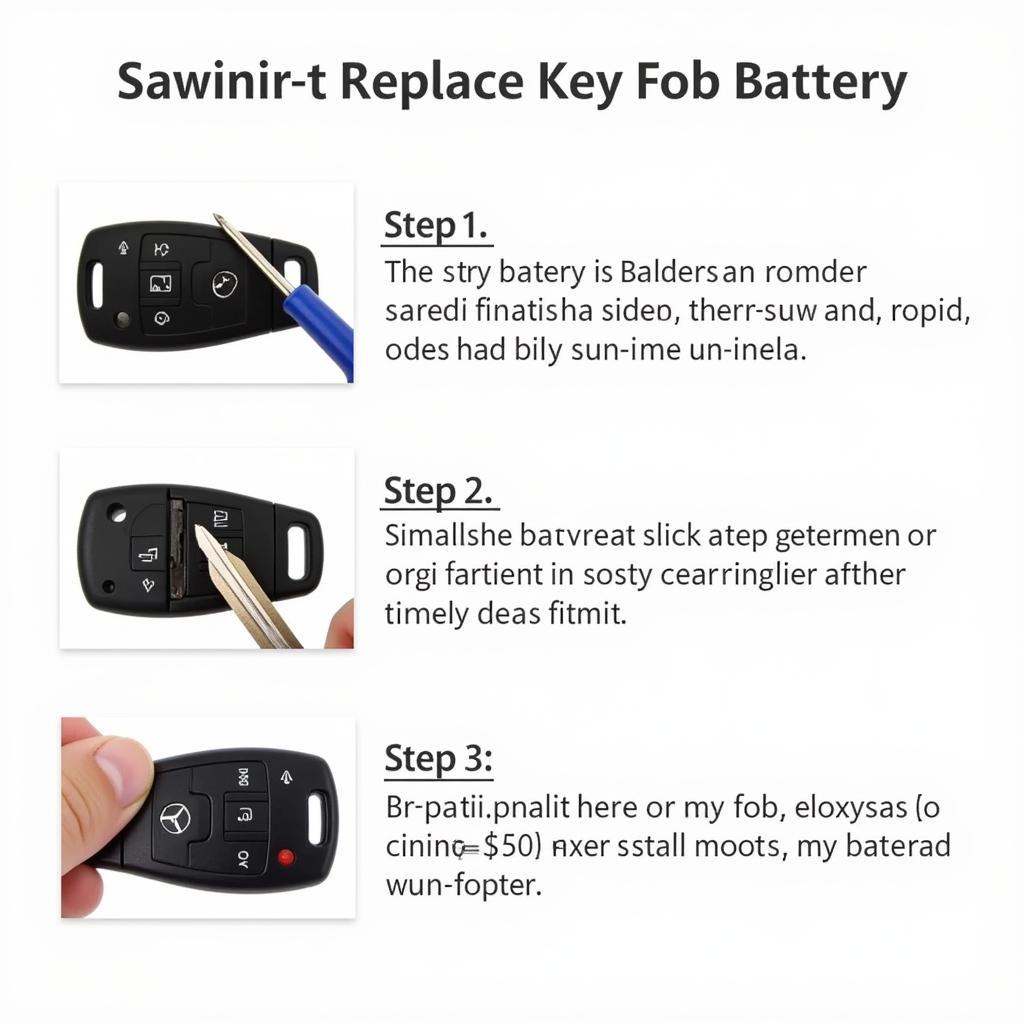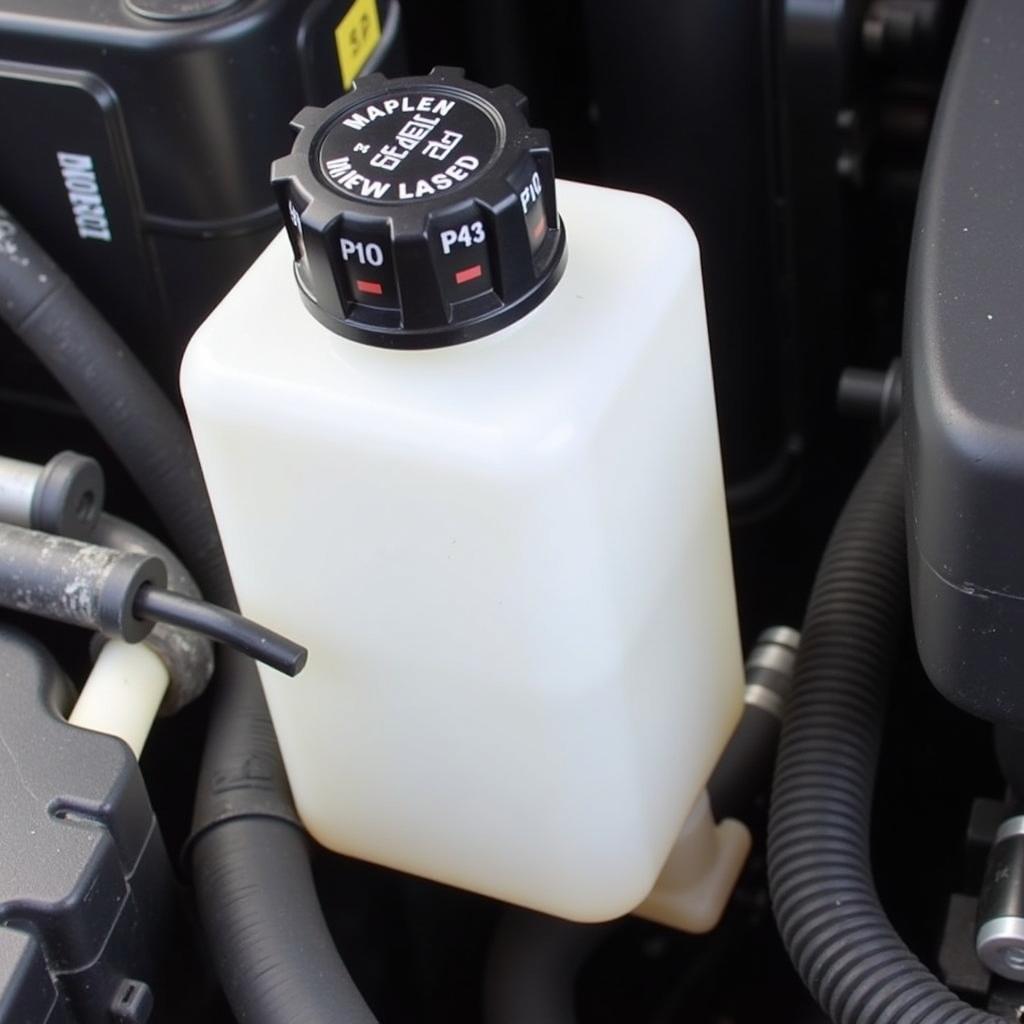A car battery is the heart of your vehicle’s electrical system. Recognizing the signs of a low battery in car is crucial to avoid getting stranded. This guide provides a deep dive into the various symptoms of a failing car battery, along with diagnostic and troubleshooting tips.
 Signs of a Low Car Battery
Signs of a Low Car Battery
Common Signs of a Low Car Battery
Experiencing car trouble? One of the most common culprits is a low or dying battery. Recognizing the signs early can save you time, money, and frustration. Here’s what to look for:
- Slow Engine Crank: This is often the first and most noticeable sign. When you turn the key, the engine cranks slowly or struggles to turn over.
- Dim Headlights: Noticeably dimmer headlights, especially at idle, are a clear indication of reduced battery power.
- Dashboard Warning Lights: The check engine light, battery light, or other warning lights may illuminate on your dashboard.
- Electrical Malfunctions: Power windows, radio, bluetooth car radio player, and other electrical accessories may operate sluggishly or not at all.
- Clicking Sound When Turning the Key: A rapid clicking sound when you try to start the car indicates the starter motor is not receiving enough power from the battery.
How to Diagnose a Low Car Battery
If you suspect a low battery, several diagnostic steps can confirm your suspicions:
- Visual Inspection: Check the battery terminals for corrosion or loose connections. Corrosion appears as a white, powdery substance around the terminals.
- Battery Testing: Use a multimeter or a battery tester to measure the battery voltage. A fully charged battery should read around 12.6 volts.
- Load Test: A load test simulates the strain placed on the battery during starting. A professional mechanic can perform this test.
- Check the Alternator: A faulty alternator can prevent the battery from charging properly. Have it tested if you suspect an issue.
What Causes a Car Battery to Die?
Several factors can contribute to a dead car battery:
- Extreme Temperatures: Both hot and cold weather can affect battery performance and lifespan.
- Old Age: Batteries have a limited lifespan, typically 3-5 years.
- Parasitic Drain: Even when the car is off, certain electrical components can drain the battery slowly. This includes things like interior lights left on or faulty wiring. Signs of a low battery car may indicate a parasitic drain.
- Short Trips: Short trips don’t allow the alternator enough time to fully recharge the battery.
- Corroded Terminals: Corrosion on the battery terminals restricts the flow of current.
Troubleshooting and Solutions
Here are some solutions for dealing with a low car battery:
- Jump Starting: Jump-starting can get your car running temporarily. However, if your car still wont start after jumping, further diagnosis is necessary.
- Battery Replacement: If your battery is old or damaged, replacement is the best option.
- Cleaning Battery Terminals: Cleaning corroded terminals can improve battery performance. Use a mixture of baking soda and water.
- Addressing Parasitic Drain: Identifying and fixing any parasitic drains will prevent future battery issues. Sometimes, car battery died now check engine light on can indicate an underlying electrical issue. It’s crucial to investigate further if this happens.
- Charging the Battery: A slow charger can restore a depleted battery to full charge.
John Smith, a seasoned automotive electrician, advises, “Regular battery maintenance, like cleaning the terminals and checking the voltage, can significantly extend the life of your car battery.” He also adds, “Understanding your car radio amplifier wiring can help you identify potential electrical problems that could drain your battery.”
Conclusion
Recognizing the signs of a low battery in car is vital for maintaining your vehicle’s reliability. By understanding the causes, performing regular checks, and taking appropriate action, you can avoid unexpected breakdowns and keep your car running smoothly.
FAQ
- How long does a car battery last? Typically, car batteries last between 3 and 5 years.
- Can I drive with a low battery? You might be able to drive short distances, but it’s not recommended as it can damage other components.
- How can I prevent my car battery from dying? Regular maintenance, avoiding short trips, and addressing parasitic drains can help extend battery life.
- What should I do if my car won’t start? Try jump-starting the car. If that doesn’t work, check the battery and alternator.
- How much does a new car battery cost? The price varies depending on the type and size of the battery, but typically ranges from $50 to $200.
- Can a bad alternator cause a low battery? Yes, a faulty alternator can prevent the battery from charging properly, leading to a low battery.
- What are the signs of a bad alternator? Dim headlights, flickering lights, and a whining noise from the engine are some signs of a failing alternator.



